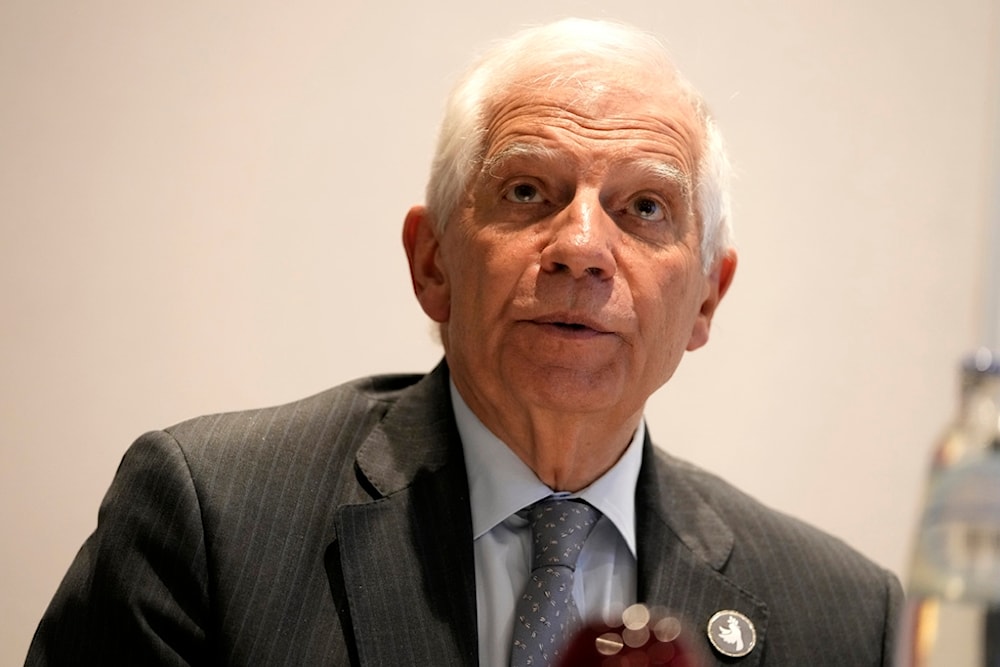Borrell warns of consequences for transatlantic relations under Trump
Trump's proposal to implement a 10% tariff on all US imports has raised significant concerns among economists and trade experts.
-

European Union foreign policy chief Josep Borrell speaks during a media conference after talks on the Middle East in Brussels, Sunday, May 26, 2024. (AP)
EU foreign policy chief Josep Borrell issued a warning Wednesday that US President-elect Donald Trump's proposed tariffs and foreign policy approach could have "far-reaching consequences" for the transatlantic relationship.
Borrell's remarks came during an opening speech at the European Parliament plenary session, where he discussed the potential disruption posed by Trump's prior threat to impose a 10% customs tariff on European goods.
"There will be far-reaching consequences for our bilateral relationship," Borrell said, warning that such tariffs could destabilize economic ties between the EU and the US, with potential impacts on both economies.
Trump's Proposed Tariffs on Imports Spark Concerns
Trump's proposal to implement a 10% tariff on all US imports has raised significant concerns among economists and trade experts.
A broad-based tariff would likely increase costs for American consumers and businesses, as imported goods become more expensive. This could result in higher prices for products ranging from electronics to clothing, straining household budgets and potentially slowing economic growth.
The proposed tariffs could also strain relationships with key trading partners, particularly the EU, which has expressed apprehension that such measures could prompt retaliatory tariffs.
Read more: Trump's return signals major shake-up in foreign policy: The Guardian
Experts warn that an escalating trade war could disrupt global supply chains, with industries heavily reliant on international trade—such as the automotive and aerospace sectors—being particularly vulnerable.
In addition to the proposed 10% tariff, Trump has suggested a 60% tariff on imports from China to address trade imbalances and intellectual property concerns. However, experts caution that such a move risks intensifying tensions between the world's two largest economies, potentially affecting global markets and economic stability.
EU to Hold Debates on Future Relations with Trump-Led US
The European Parliament has scheduled special debates in Brussels for November 13-14 to discuss the future of EU-US relations under Trump's administration.
Expected topics include trade cooperation and strategies for managing relationships with major global actors such as Russia, China, and countries in the Middle East.
The US presidential election, held on November 5, saw Republican candidate Donald Trump declared the winner by major networks after securing the necessary Electoral College votes.
Democratic candidate Kamala Harris conceded, and President Joe Biden extended his congratulations. Trump's win makes him the first US president since the 19th century to serve non-consecutive terms.
With the Electoral College set to vote on December 17 and Congress to certify the results on January 6, Trump's inauguration is slated for January 20, marking the beginning of a new phase in EU-US relations.
Read more: Trump cabinet unveiled, includes loyalists in key roles

 3 Min Read
3 Min Read








